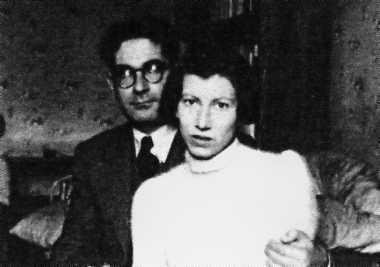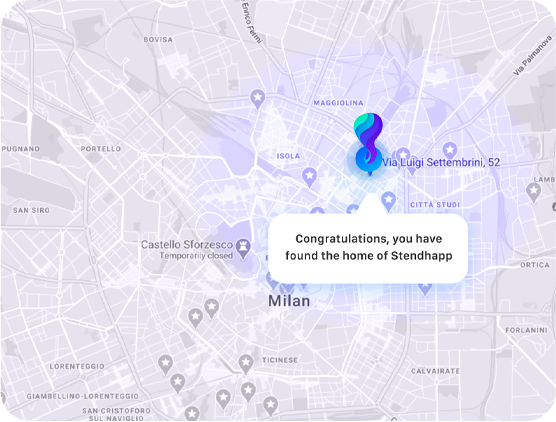“There is a danger of cheating with words. It is necessary to go back to choosing them, to scrutinizing them in order to feel if they are false or true, if they are rooted in us or if they only have the ephemeral roots of common illusion”. This is how Natalia Ginzburg expressed herself with reference to the success of “Lessico Famigliare“. She wrote this in the creases of the novel and said it, when interviewed, on various occasions. Reflecting on her own creative process and tracing her literary-authorial path, Ginzburg in “Cinque romanzi brevi e altri racconti” (Five short novels and other short stories) figures it as an itinerary towards “pure, naked, uncovered and declared memory”: a new form of autobiographical realism where the self, the memory and the adhesion to the reality of one’s own life progressively acquire space and literary dignity.
Her two families: the one of birth and the editorial one, the publishing house Einaudi
In this regard, retracing the life of Natalia Ginzburg means inlaying the lives of her two families: her birth family (Levi) and her professional family (Einaudi). Nat, as she was called by her friend Pavese, was born in Palermo on July 14, 1916, into a family (her father was a scientist and university professor from Trieste of Jewish origin) that was anything but conventional. Filippo Turati, Margherita Sarfatti, and Giacomo Debenedetti were just some of the people who frequented the Levi home and who determined the cultural and human history of our country. A peninsula that, guided by a character only apparently subdued, in reality, courageous and corsair, Ginzburg would then travel far and wide in all its extension: having left Sicily almost immediately, she lived in Turin, London, and Rome, where she died in 1991. In between: she married Leone Ginzburg with whom she had three children, she hid in Abruzzo during the war, she was tragically widowed, she remarried, she changed many houses, she joined the Communist Party, she attempted suicide, and then finally returned to writing with renewed vigor.
Ginzburg’s narrative strength: “Familiar Lexicon”
A truly epic life, hers. When she was a child, her father called her a “perpetual pest”, because she didn’t know how to dress herself or tie her shoes, she left everything lying around and was afraid to go to school alone. It is precisely on all that she cannot do, that she cannot understand, that she struggles to cope with, that Natalia Ginzburg has built an all-around narrative strength. In fact, Ginzburg is not only the author of “Lessico famigliare”, a literary masterpiece that pulls the strings of an entire generation: “the last woman left on earth” – this is how Calvino defined her in 1947 in L’Unità – she was one of the few (together with Goliarda Sapienza and Elsa Morante) in the post-war period who was allowed to give an effective, and by no means docile, voice to the female gaze. Deeply feminine, through a domestic but not homely lexicon, literary but not lyrical, sophisticated and unadorned, personal and reserved, Ginzburg with the sole force of her words has outlined a new way of being a woman and of telling about it. Words at first sight almost trivial in their simplicity, but in reality weighed and weighed among a thousand. World-words that come together in a deliberately binary prose: desperate and courageous, cold and intimate, spartan and delicate, abrupt and fragile. Thus, his is a whisper that becomes a cry: sharp, pointed, unforgettable.
“I’ve never read something so Piedmontese”, Calvino said in 1961, talking about “Le voci della sera“. It is no coincidence, since the close ties with the Giulio Einaudi publishing house mark in a constant and profound way both the creative path – as an author of fiction, of essays and of theater – and the editorial activity of Natalia Ginzburg, which began in the second half of the Thirties and continued almost continuously until the year before her death. The family of her childhood and the professional (and political) family of her adulthood are therefore for Ginzburg not only two biographical contexts, but also two literary topos.
From the family, which she chooses as a privileged place of observation, her eye then aims in an increasingly tangible way at the macro theme of human relationships so much so that, from “Lessico Famigliare” onwards, it is practically no longer possible to write about human relationships without thinking of her. Those who, therefore, wrongly consider Natalia Ginzburg simply an author of stories about umbilical life, see only a small part of what she has achieved; but her artistic and critical reflection goes much further: it looks at the world around her, it talks about the comparison between individuals. After the success of “Lessico Famigliare”, “Caro Michele” puts into prose the collapse of the family; from the same awareness emerges the following “La famiglia Manzoni”; the climax of disillusionment is reached with “La città e la casa”. “Ginzburg’s first scandal is innocence separated from naivety”, said the critic Cesare Garboli, who knew her very well.
Ginzburg translates Proust
The collective perspective of her books is, on closer inspection, the reason why today, thirty years after the death of the writer, her words still have something to tell us. Natalia Ginzburg’s works are in fact in some way anthropological research: not for nothing are they full of people, ties and objects used as symbols and talismans, invested with a poetic and political value as a legacy of an activity as a translator that led her, at only twenty years of age, to create one of the most beautiful Italian versions of Proust’s Recherche. Cesare Pavese defined her as “a formidable reader who is hardly enthusiastic, incapable of lying about her taste”; Giulio Einaudi, on the other hand, spoke of her as a “pivot of the editorial work in the years after the Liberation” and “critical conscience of the publishing house”.
The objects, the colors, the fabrics, the accents and the gestures; it doesn’t matter what she writes about or from where, or in which era we go back to read her: Ginzburg’s prose remains. Who knows what the last woman on earth would write today: she would probably stress once again the importance of not writing a sentence because it is beautiful, but because it is true; she would warn about the importance of preserving vocabulary by saving it from the corrosion of time.
Certainly, precisely because the world shows itself to us as it appeared to Ginzburg – enormous, unknowable and without boundaries – it would remind us of the ethical and moral value of witnessing as the only means we have of participating in the life of our neighbors, lost and confined in a solitude equal to that of the writer. So: woe betide cheating with words.
Credit photo: Wikimedia Commons (Natalia and Leone Ginzburg)





